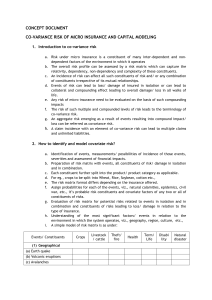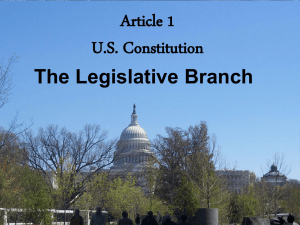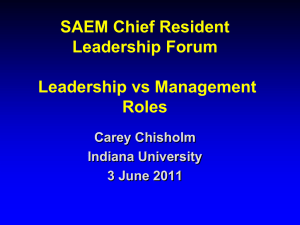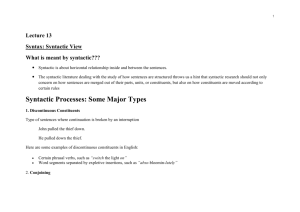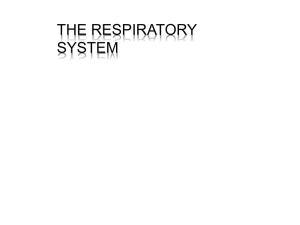CTC12_4C - National Hospice and Palliative Care Organization
advertisement
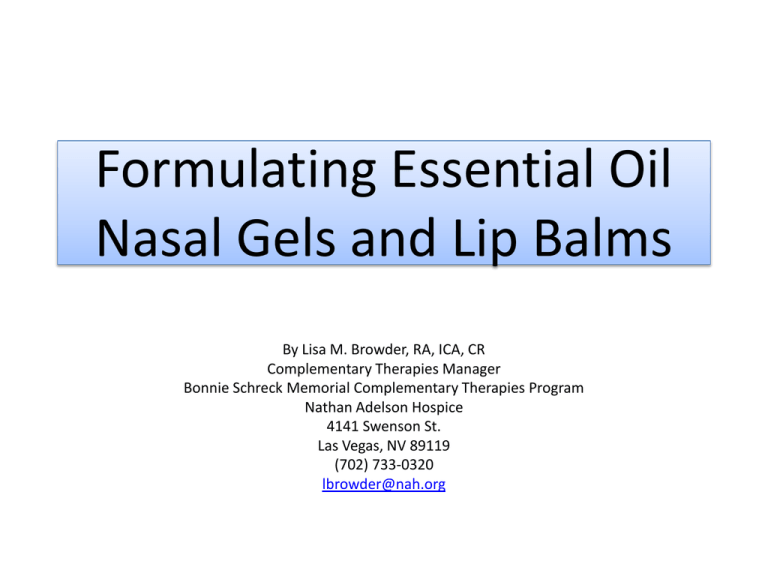
Formulating Essential Oil Nasal Gels and Lip Balms By Lisa M. Browder, RA, ICA, CR Complementary Therapies Manager Bonnie Schreck Memorial Complementary Therapies Program Nathan Adelson Hospice 4141 Swenson St. Las Vegas, NV 89119 (702) 733-0320 lbrowder@nah.org Fixed Oils Grape Seed Oil Smooth texture without being oily. Sweet Almond Oil Doesn’t absorb quickly. Skin softener. Jojoba Long shelf life. Anti-inflammatory. Rosehip Seed Oil Good for tissue regeneration. Too heavy for massage. Coconut Oil Stable. Stores easily. Tastes good. Evening Primrose Oil Contains GLA – important to every organ. Aloe Vera Binds moisture into the skin. Shea Butter Oil Tamanu Oil Not suitable for massage. Strong analgesic and anti-inflammatory. Sciatica, rheumatism, shingles. Forms breathable, water-resistant film. General characteristics of molecules Functional Groups Common Constituents Specific chemical constituents that fit into functional groups Functional Groups Common Constituents Terpenes Monoterpenes Sesquiterpenes Names end in –ene Top notes in perfumery. You smell them first but they burn off fast Terpenes can be skin irritants, but not often Mucolytic (drying effect) Antiviral (Herpes virus) Spasmolytic (good for muscle pain) Possible anti-tumor agents Lemon Functional Groups Terpene Constituents Common Constituents Limonene – stimulates circulation Lemon Rosemary Pinene – excellent air disinfectants Pine Juniper Pine 22-43% 26-70% 55-80% 15-34% Functional Groups Esters Names end in –lyl + acetate Easily metabolized “User friendly” Watch for methyl salicylate content Antifungal Anti-inflammatory Wintergreen Antispasmodic Calming to the Central Nervous System Sedative Analgesic Thought to re-equilibrate the sympathetic nervous system and the endocrine system Common Constituents Functional Groups Common Constituents Ester Constituents Linalyl acetate Clary Sage Lavender Bergamot 50% 40% 25% Methyl salicylate Wintergreen 98% (4ml in children results in respiratory failure and death – Tisserand and Balacs 1995) Functional Groups Common Constituents Aldehydes Names end in –al or have “aldehyde” in the name Most citrus oils fit here Usually powerful aromas Mucus membrane irritants Unstable and oxidize easily, leading to dermal irritation and/or sensitization Calming to Central Nervous System Anti-infectious (management of opportunistic infections in the last stages of AIDS) Antiviral Anti-inflammatory Hypotensors Vasodilators Air antiseptics Functional Groups Aldehyde Constituents Geranial Citronellal Melissa Lemongrass May Chang Citral Common Constituents 24% 58% 41% Eucalyptus citriodora May Chang Citronella 90% 6% 14% Lemongrass Mucus membrane irritant Be careful of use with patients who have glaucoma as it causes extra pressure However – antiviral, insecticidal/larvacidal/repellent effects Cinnamaldehyde Cinnamon Bark Mucus membrane and dermal irritant Cinnamon Bark harvest Functional Groups Alcohols Common Constituents Names end in –ol Middle notes in perfumery – scent stays the longest Considered the most beneficial & safest of all Caution: Although safest, anything used in excess can have consequences Vasoconstrictive Analgesic – cooling to application site Sedative Antispasmodic Strong antibacterial, antifungal and antiviral Peppermint Functional Groups Alcohol Constituents Geraniol Palmarosa Geranium 75% 20% Menthol Peppermint 45% Linalol Lavender Rosewood Tea Tree 37% 90% Terpinen-4-ol Tea Tree Marjoram Geranium 40% 25% Common Constituents Functional Groups Common Constituents Phenols Names end in –ol but there are only 4 common ones They don’t evaporate easily Strong smelling Thyme Most irritant of constituents to skin & mucus membranes Contact dermatitis and sensitization dermatitis Possible liver damage Most stimulating to peripheral blood circulation so good for cold hands & feet Anti-infectious – can kill Staphylococcus aureus and Pseudomonas aeruginosa Good for acute infections Treats Candida albicans (Thrush) Functional Groups Phenol Constituents Common Constituents Thymol Oregano 85% Thyme 27% Carvacrol Oregano 4% Chavicol Bay 56% Cinnamon Eugenol - Can deplete the liver of glutahione, a detoxifying molecule, in the same way as paracetamol Cinnamon Leaf 87% What do you see in common Clove 76% with these essential oils? Functional Groups Ketones Names end in –one except for one: camphor Many also contain oxides Resistant to metabolism by the liver Long half-life so be careful with long-term use Neurotoxic effects from a select few Reduce secretions Wound healing properties – wounds, scars, burns and surgical wounds, preventing cheloid formation and over-production of scar tissue Antiviral – papilloma, herpes zoster Anti-haematomal (specifically the italidone in Helichrysum) Common Constituents Functional Groups Ketone Constituents Italidone Helichrysum Menthone Peppermint 8% 30% Carvone Camphor Rosemary 15-30% Spike Lavender 15% Helichrysum/Everlasting/Immortelle Common Constituents Spearmint 48% Neurotoxic constituents: Thujone Mugwort, Wormwood Pulegone Pennyroyal Camphor Dalmatian Sage, Yarrow Rosemary ct camphor Functional Groups Common Constituents Oxides Names end in –ole Possibly strongest odorants Respiratory irritation (mucus membranes) Care should be taken with asthmatics Expectorant effect by stimulating mucus glands and cilia of the respiratory tract Eucalyptus globulus Functional Groups Oxide Constituent Common Constituents 1,8 cineole (Eucalyptol) Eucalyptus globulus Spike Lavender Rosemary Cardamom Sage Niaouli 70% 15% 15% 30% 15% 41% Cardamom Lip Balms & Nasal Gels Rollerball container Coconut Oil Mango Butter Lavender Everlasting 1% dilution ¼ oz container Aloe vera gel Lavender Everlasting 1% dilution Aloe vera Nasal inhaler Perfume rollerball What Else Could You Treat? Lip Balm * Digestive Tract Nausea Gas Constipation * Muscular aches & pains * Oral Thrush Nasal Gel * Headaches * Insomnia * Anxiety * Respiratory * Depression Resources SKS Bottle -containers Birch Hill Happenings - inhalers Mountain Rose Herbs – fixed oils and butters Essential Oil Companies: Nature’s Gift Florihana Original Swiss Aromatics Wyndmere Naturals Books: Aromadermatology – by Janetta Bensouilah and Philippa Buck The Complete Guide to Aromatherapy – by Salvatore Battaglia Aromatherapy for Health Professionals – by Shirley Price and Len Price The Healing Intelligence of Essential Oils - by Kurt Schnaubelt, Ph.D. Aromatherapy vs MRSA - by Maggie Tisserand Liquid Sunshine - by Jan Kusmirek The Chemistry of Aromatherapeutic Oils – E. Joy Bowles Aromatherapy for the Healthy Child - by Valerie Ann Worwood Organizations: Nathan Adelson Hospice “Bonnie’s Comfort” Visitor Program National Association for Holistic Aromatherapy (NAHA)
